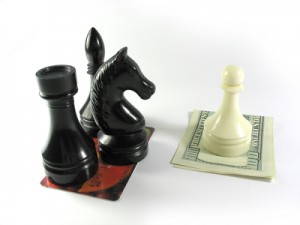With the ease and convenience, not to mention the safety of using credit cards, it is easy to see how credit cards ruin the cash culture. It has, after all, become the preferred payment method by a great deal of people.
And as the world moves closer and closer into a completely cashless financial landscape, it is hard not to point out the negative aspects of the credit card to the world as a whole. While every culture differs in their economic climate, the trend of the upward motion the numbers of credit card users are taking is universally causing a lot of less of pleasant side effects. Here are five of the not so ideal outcomes the increasing dependence on the credit card has brought on people:
Credit Cards Ruin the Cash Culture with Burdened Debt
The increased use of the credit card can only bring about an increased number of people who have credit card debt. With more and more people using their credit cards to make even small purchases, the accumulated amount of money owed, and the added interest rates that come with it, are causing a good number of people to be set back. In Malaysia, household credit card debt has reached a high of 80.5 percent as of 2012. Many point out that the reason for such an escalated number is the lifestyle that many people are accustomed to, lifestyles they actually cannot afford without credit. Similar cases exist all over the world, which prompts the question, are credit cards more of a burden than a privilege? This is but one way that credit cards ruin the cash culture
Supply and Demand Allow Credit Cards to Ruin the Cash Culture
With the option of using credit becoming more and more preferred, this has paved way for an increase in not just credit card holders, but credit card issuers as well. More financial institutions have become more than willing to lend credit to people, such that the relative ease with which to acquire a credit card fuels the already burning amount of credit card debt from the world over. Business-wise, this can be good for any financial institution that offers credit, but is slowly driving people to relative poverty by allowing them a deepening hole of debt a good business decision in the long run?
Waiting to Burst
The increasing number of households with credit card debt has created quite a credit card bubble that could burst at any point in time. If the majority of people suffering from debt come to a point wherein payment of that debt is no longer possible (a distinct possibility, as exhibited in the United States a few years back), the number of foreclosures and other effects could be crippling to any economy.
The Risk of Online Transactions
The dependence on credit cards have also paved the way for a dependence on online shopping, which, for all the good this brings, produces a couple of huge unpleasant scenarios. The convenience of online shopping has made people even more dependent on credit cards, compounding an already massive problem of credit card use. Even worse, unsafe online shopping produces victims of identity theft which, among other things, result to even more financial complications for both the credit card holder and the issuer.
An Overall Paradigm Shift
The biggest impact of the dependence on credit cards of course, is the actual dependence on credit cards. What this means is that there is a distinct change in point of view in cardholders as individuals, as their view on the use of cash have slowly started to result in a paradigm shift on how transactions are generally done. Many businesses, big and small, might not be able to keep up with this shift as cash transactions, the lifeblood of many businesses, slowly gets phased out. The shift also leads to more people believing that there is a need for a credit card, despite their financial situation.
All of the effects enumerated here seem problematic as these effects also have a tendency to cause more complications. Sadly, a lot of these can be prevented simply by embracing basic discipline in personal finance, if only such discipline is practiced.
Author Bio:
Cristina Beltran is a writer, blogger and online marketing specialist at Compare Hero, Malaysia’s leading online comparison portal. Tina is also a freelance writer she worked as an information researcher before she pursued her writing career.






Speak Your Mind